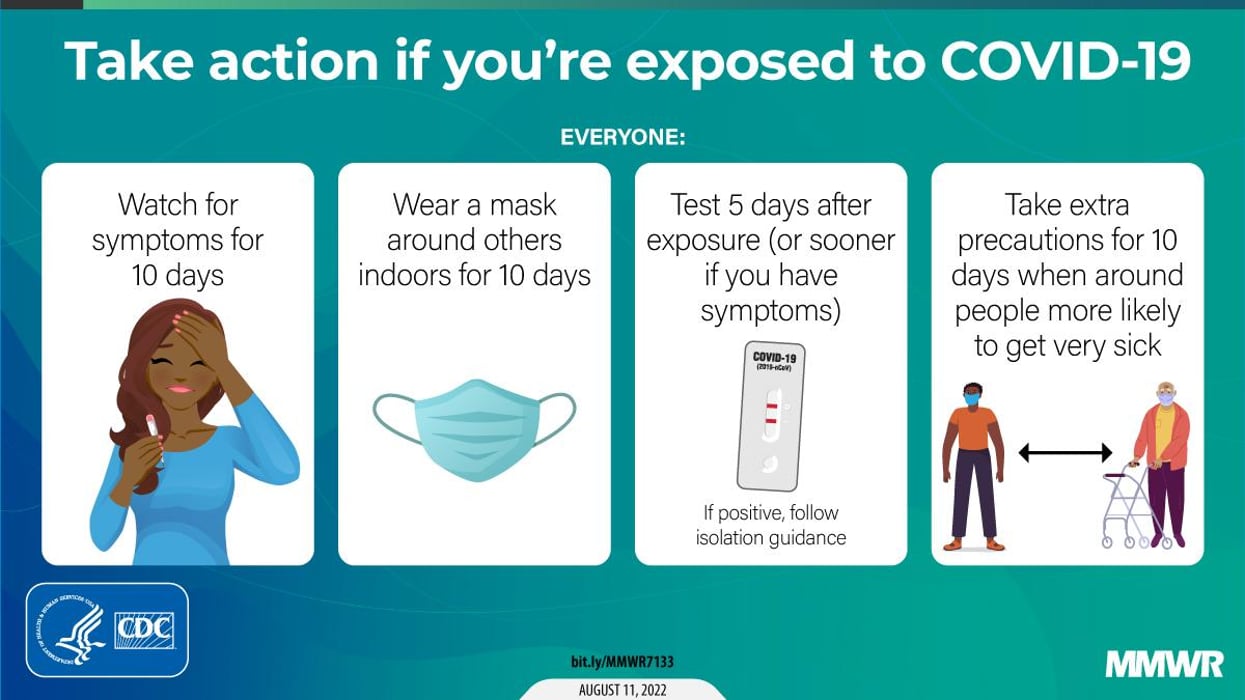CDC Eases COVID Social Distancing Guidance

THURSDAY, Aug. 11, 2022 (HealthDay News) -- The U.S. Centers for Disease Control and Prevention said Thursday it has loosened its COVID-19 social distancing recommendations as the American public learns to live with the virus in its midst.
“We’re in a stronger place today as a nation, with more tools — like vaccination, boosters, and treatments — to protect ourselves, and our communities, from severe illness from COVID-19,” Greta Massetti, author of a report on the new guidance, said in a CDC news release.
“We also have a better understanding of how to protect people from being exposed to the virus, like wearing high-quality masks, testing, and improved ventilation. This guidance acknowledges that the pandemic is not over, but also helps us move to a point where COVID-19 no longer severely disrupts our daily lives,” Massetti added.
"As transmission of SARS-CoV-2 continues, the current focus on reducing medically significant illness, death, and health care system strain are appropriate and achievable aims that are supported by the broad availability of the current suite of effective public health tools," Massetti's team wrote in its new guidance.
Changes to the guidance include de-emphasizing the 6 feet of social distancing that the CDC has advised since early in the pandemic. Instead, the agency advises Americans on what settings are riskier based on crowds, poor ventilation and personal risks such as health issues and age. An emphasis will also be put on building ventilation to stop the spread of many respiratory illnesses, the agency said.
Although the CDC still asks people who are sick with COVID-19 to isolate, the guidance would ease recommendations for anyone who is simply exposed to an ill person. Instead of being asked to stay home for at least five days, those individuals should wear a mask for 10 days and get tested on day 5, the CDC said. However, the guidance also suggests that exposed persons take extra precautions around people at high risk for severe disease for at least 10 days.
The agency did fine-tune its advice for those who fall ill with COVID: If you have moderate illness (shortness of breath or had difficulty breathing), severe illness (hospitalization), or a weakened immune system, you need to isolate through day 10, instead of day 5.
If you are unsure if your symptoms are moderate or severe, or if you have a weakened immune system, talk to a health care provider for further guidance, the agency said.
If you have ended isolation, and your COVID-19 symptoms worsen or you test positive again, you should restart your isolation at day 0. Talk to a health care provider if you have questions about your symptoms or when to end isolation, the agency advised.
The reasons for the changes include a high level of underlying immunity, with 95% of Americans having had the virus or having been vaccinated against it, as well as changes in public opinion about the precautions.
Experts agreed the new guidance appears to be a reality check.
The relaxed guidelines are “a concession to realism, to the way that a lot of people are handling this,” William Hanage, an epidemiologist at the Harvard T.H. Chan School of Public Health in Boston, told the Washington Post. While he noted that the new guidelines are “entirely reasonable, my major concern is whether they will continue to be entirely reasonable given the unpredictable dynamics of the virus.”
"I think the question is, is the CDC finally saying, ‘Look, we’ve done what we can do to contain the most acute phases of this pandemic,'" Jeanne Marrazzo, an infectious diseases expert at the University of Alabama at Birmingham, told the Post. “So are they just finally saying that it is time for us to sort of take a step back and think about putting this back to the individual person?”
Regardless, the CDC’s recommendations are not mandates. Local government, states and school districts can still set their own guidelines.
About 42% of the U.S. population currently lives in areas with a high level of virus in the community, according to the CDC.
The new guidance was published Aug. 11 in the CDC publication Morbidity and Mortality Weekly Report.
More information
USA.gov has more on COVID-19 and related issues.
Related Posts
Does Your Child Have Asthma? Here’s How to Prepare Them to Go Back to School
WEDNESDAY, July 19, 2023 (HealthDay News) -- Whether your child attends a...
U.S. Smoking, Vaping Rates Fell in First Year of Pandemic: CDC
FRIDAY, March 18, 2022 (HealthDay News) -- Consider it a silver lining, courtesy...
Spinal Anesthesia Tied to More Severe Pain After Hip Fracture Surgery
MONDAY, June 13, 2022 (HealthDay News) -- Severe pain is common after hip...
Un estudio halló que 1 de cada 4 niños hospitalizados con COVID tiene problemas de salud meses después
Was this page helpful?
